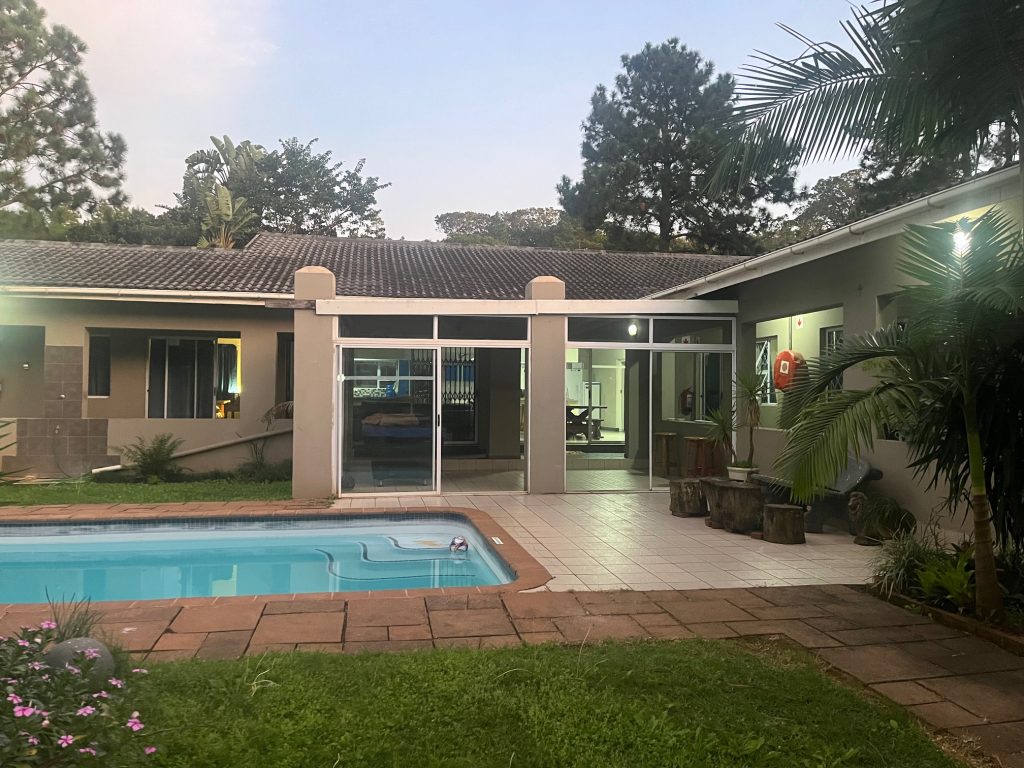At South Coast Recovery Centre, our sober living house offers far more than a safe place to stay — it provides a vital space for continued healing, self-discovery, and personal growth. Recovery doesn’t end after primary treatment. In fact, for many, the most challenging part begins when they leave the structure of rehab and return to the outside world.
Our halfway house programme is designed to help individuals navigate that transition with confidence and support. It acts as a stabilising bridge between the intensive care of inpatient treatment and the independence of daily life — a place where residents can continue building the skills, resilience, and mindset needed for lasting recovery.
It’s where new routines are formed, confidence is rebuilt, and each day becomes an opportunity to grow stronger in sobriety. Surrounded by peers and guided by professionals, clients begin to reclaim control over their lives in a safe, encouraging space.

A Safe, Structured Environment to Rebuild
Leaving the structured environment of rehab can be overwhelming. Triggers, unresolved family dynamics, and daily stressors can easily derail progress when individuals are left to manage recovery alone. That’s why our sober living house exists — to offer a substance-free, structured, and supportive setting that reduces risk and builds readiness for reintegration.
Residents are held accountable through daily routines, house guidelines, regular drug testing, and mentorship. They participate in ongoing therapeutic conversations, develop healthy habits, and begin slowly reconnecting with the outside world — whether through education, volunteering, or part-time work. This balance of structure and independence is key to sustainable recovery.
Support for the Whole Family
Addiction doesn’t just affect the individual — it impacts families deeply. After primary treatment, families often feel unsure about how to support their loved one without compromising their own boundaries and emotional health.
Our sober living house brings relief to families by ensuring that their loved one is in a safe and professionally supported environment. It offers time and space for families to heal, reconnect, and rebuild trust at a healthy pace. Meanwhile, residents learn how to reintegrate into relationships with new tools, emotional awareness, and personal responsibility.
Continued Growth with Professional Oversight
What sets our sober living programme apart is the daily involvement of trained professionals. Residents receive ongoing guidance from our on-site Halfway House Manager and recovery team, including access to 24-hour medical support from our primary care clinic.
The therapeutic process doesn’t pause after rehab — it evolves. Clients continue with counselling, step work, peer support, and practical life development. Whether addressing financial literacy, communication skills, or lingering emotional wounds, each resident is guided to keep moving forward.
Easing Back into Life at a Sustainable Pace
Everyone’s recovery journey moves at a different pace. Some residents begin exploring education or employment opportunities quickly, while others take more time to feel stable. Our sober living house respects this variability and offers flexibility while ensuring a strong recovery foundation remains in place.
Residents are not thrown back into life without support — instead, they ease back into responsibility while remaining connected to the therapeutic framework of the recovery centre. This model helps prevent relapse and empowers people to rebuild their lives with purpose, self-awareness, and confidence.
A Place to Grow, Heal, and Thrive
Our sober living house is more than just accommodation — it’s a place of transition, empowerment, and transformation. Clients are supported in rebuilding routines, rediscovering passions, strengthening family bonds, and stepping into their next chapter with resilience.
We recommend a minimum stay of two months, though many residents choose to stay longer to maximise the emotional, physical, and psychological benefits. It’s not just about staying sober — it’s about becoming the person you were always meant to be.